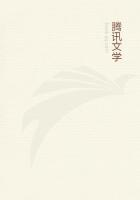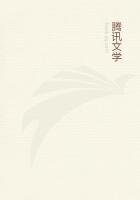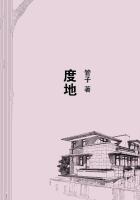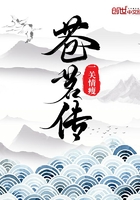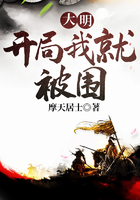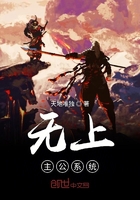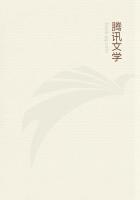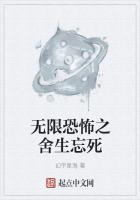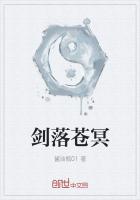The highest of them were covered with snow, white as sugar; and one snowy peak towered above all the rest. To the east and to the west were other such hills, and here and there smoke rose from Aouls in the ravines. 'Ah,' thought he, 'all that is Tartar country.' And he turned towards the Russian side. At his feet he saw a river, and the Aoul he lived in, surrounded by little gardens. He could see women, like tiny dolls, sitting by the river rinsing clothes. Beyond the Aoul was a hill, lower than the one to the south, and beyond it two other hills well wooded; and between these, a smooth bluish plain, and far, far across the plain something that looked like a cloud of smoke. Zhílin tried to remember where the sun used to rise and set when he was living in the fort, and he saw that there was no mistake: the Russian fort must be in that plain. Between those two hills he would have to make his way when he escaped.
The sun was beginning to set. The white, snowy mountains turned red, and the dark hills turned darker; mists rose from the ravine, and the valley, where he supposed the Russian fort to be, seemed on fire with the sunset glow. Zhílin looked carefully.
Something seemed to be quivering in the valley like smoke from a chimney, and he felt sure the Russian fortress was there.
It had grown late. The Mullah's cry was heard. The herds were being driven home, the cows were lowing, and the lad kept saying, 'Come home!' But Zhílin did not feel inclined to go away.
At last, however, they went back. 'Well,' thought Zhílin, 'now that I know the way, it is time to escape.' He thought of running away that night. The nights were dark -- the moon had waned. But as ill-luck would have it, the Tartars returned home that evening. They generally came back driving cattle before them and in good spirits. But this time they had no cattle. All they brought home was the dead body of a Tartar -- the red one's brother -- who had been killed. They came back looking sullen, and they all gathered together for the burial. Zhílin also came out to see it.
They wrapped the body in a piece of linen, without any coffin, and carried it out of the village, and laid it on the grass under some plane-trees. The Mullah and the old men came. They wound clothes round their caps, took off their shoes, and squatted on their heels, side by side, near the corpse.
The Mullah was in front: behind him in a row were three old men in turbans, and behind them again the other Tartars. All cast down their eyes and sat in silence. This continued a long time, until the Mullah raised his head and said: 'Allah!' (which means God). He said that one word, and they all cast down their eyes again, and were again silent for a long time. They sat quite still, not moving or ****** any sound.
Again the Mullah lifted his head and said, 'Allah!' and they all repeated:
'Allah! Allah!' and were again silent.
The dead body lay immovable on the grass, and they sat as still as if they too were dead. Not one of them moved. There was no sound but that of the leaves of the plane-trees stirring in the breeze. Then the Mullah repeated a prayer, and they all rose.
They lifted the body and carried it in their arms to a hole in the ground. It was not an ordinary hole, but was hollowed out under the ground like a vault. They took the body under the arms and by the legs, bent it, and let it gently down, pushing it under the earth in a sitting posture, with the hands folded in front.
The Nogáy brought some green rushes, which they stuffed into the hole, and, quickly covering it with earth, they smoothed the ground, and set an upright stone at the head of the grave. Then they trod the earth down, and again sat in a row before the grave, keeping silence for a long time.
At last they rose, said 'Allah! Allah! Allah!' and sighed.
The red-bearded Tartar gave money to the old men; then he too rose, took a whip, struck himself with it three times on the forehead, and went home.
The next morning Zhílin saw the red Tartar, followed by three others, leading a mare out of the village. When they were beyond the village, the red-bearded Tartar took off his tunic and turned up his sleeves, showing his stout arms. Then he drew a dagger and sharpened it on a whetstone. The other Tartars raised the mare's head, and he cut her throat, threw her down and began skinning her, loosening the hide with his big hands. Women and girls came and began to wash the entrails and the inwards. The mare was cut up, the pieces taken into the hut, and the whole village collected at the red Tartar's hut for a funeral feast.
For three days they went on eating the flesh of the mare, drinking buza, and praying for the dead man. All the Tartars were at home. On the fourth day at dinner-time Zhílin saw them preparing to go away. Horses were brought out, they got ready, and some ten of them (the red one among them) rode away; but Abdul stayed at home. It was new moon, and the nights were still dark.
'Ah!' thought Zhílin, 'to-night is the time to escape.' And he told Kostílin; but Kostílin's heart failed him.
'How can we escape?' he said. 'We don't even know the way.'
'I know the way,' said Zhílin.
'Even if you do'' said Kostílin, 'we can't reach the fort in one night.'
'If we can't,' said Zhílin, 'we'll sleep in the forest. See here, I have saved some cheeses. What's the good of sitting and moping here? If they send your ransom -- well and good; but suppose they don't manage to collect it? The Tartars are angry now, because the Russians have killed one of their men. They are talking of killing us.'
Kostílin thought it over.
'Well, let's go,' said he.
V
Zhílin crept into the hole, widened it so that Kostílin might also get through, and then they both sat waiting till all should be quiet in the Aoul.

